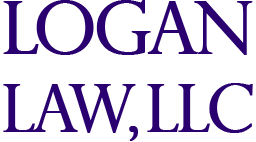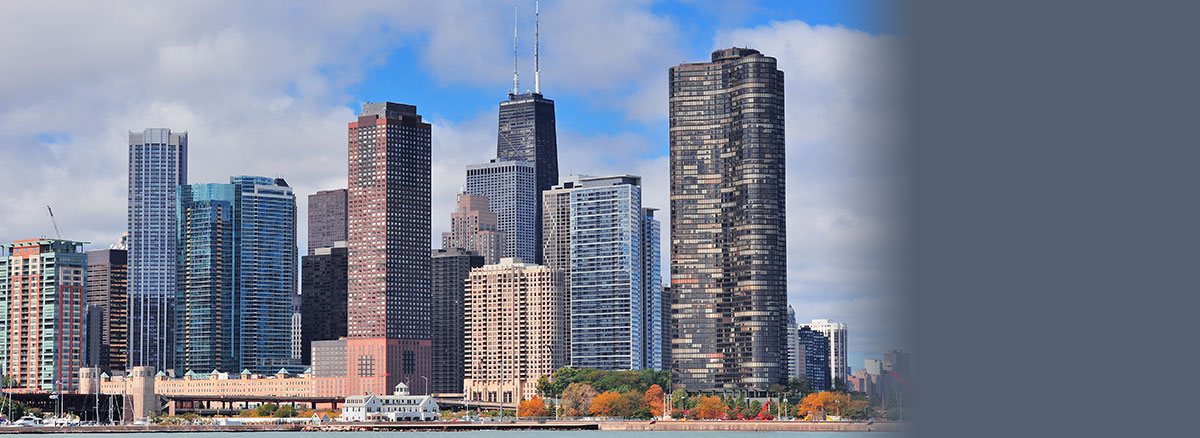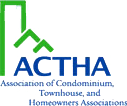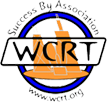
Condominium Association Meetings and Elections
(As presented at the Fall Convention, 2009 of the Association of Condominium, Townhouse and Homeowners Associations (ACTHA))
ASSOCIATION MEETINGS AND ELECTIONS
ACTHA Fall Conference – October 24, 2009
Presented by Barry Kreisler, Logan Law, LLC
Phone: (773) 394-6400
1) General Context – Association governance follows the same format as that of a business corporation:
a) Unit Owners are similar to shareholders. They may vote solely in accordance with their own self interest at Unit Owner meetings and have no fiduciary duty to the Association or to other Unit Owners. Their vote is limited to election of the Board of Managers and to certain Association actions considered of such importance as to not be controlled solely by the officers and directors of the Association, such as sale of all or substantially all of the Association property, merger or consolidation, etc. Association Unit Owners are given the right to attend Board of Managers Meetings, subject to certain exceptions, and to meet to discuss proposed rules and regulations. They also have certain rights, by petition of Unit Owners with at least 20% of the percentage interest in the common elements, to subject some decisions otherwise reserved to the Board to a vote of Unit Owners.
b) The Board of Managers or Board of Directors of the Association play an analogous role to the Board of Directors of a business corporation in electing officers as well as setting policy and making decisions as to important Association actions. Each Director or Manager of the Association has a fiduciary duty to act in the best interests of the Association but has some protection from second guessing by what is called the “business judgment” rule.
c) The Officers of the Association typically are a President, Secretary and Treasurer and sometimes one or more vice presidents or assistant officers. The officers conduct the day to day business of the Association subject to control and supervision of the Board and also have a fiduciary duty to the Association.
d) The formal involvement and decision making by the Unit Owners and Board of Managers of the Association is conducted through meetings and elections, of which there are 3 general types:
i) Unit Owner Meetings;
ii) Board of Managers Meetings; and
iii) Meetings of Committees constituted by the Board.
2) Unit Owners Meetings and Elections:
a) The Condominium Act requires that Unit Owners meet annually, at minimum for the purpose of election of members of the Board of Managers, but they may meet for other purposes at the annual meeting, or more often in special meetings.
b) Voting is generally by percentage interest in the common elements, which is a percentage assigned to each unit in the Declaration (initially based upon the respective fair market values of each unit). However, if the Condominium Act does not specifically require a percentage interest vote on a particular matter, the By-Laws can provide for a single equally weighted vote as to such matter for each unit.
c) Any member of the Association has the right, but only for a proper purpose, to examine and copy a current listing of the names, addresses and weighted vote of all members of the Association entitled to vote. To exercise this right, the member must submit a written request to the Association’s Board or its authorized agent, specifying the records and the proper purpose for the request.
d) The Condominium Act permits only one class of membership.
e) Elections of the Board of Managers are the most common exercise of Unit Owner voting:
i) The Board may disseminate to unit owners biographical and background information about candidates for election if (i) reasonable efforts are made to identify all candidates and all are given the opportunity to include their information in the information to be disseminated; and (ii) the Board does not express a preference in favor of any candidate.
ii) Elections may be conducted by secret ballot, subject to reasonable rules adopted by the Board. Secret ballots are ballots where only the percentage interest of the unit being voted and the vote itself need be marked. In the case of a secret ballot, (a) the Board must adopt rules to verify the status the voter, and (b) any candidate for election or the candidate’s representative has the right to be present at the counting of the ballots.
iii) In the case of a unit being sold under what is often known as a “contract sale’ or “installment contract” for deed, the buyer is permitted to vote and be counted for purposes of determining a quorum.
iv) A quorum for a Unit owners meeting is 20% of the percentage interests in the common elements, unless otherwise provided in the By-Laws or by a majority vote of Unit Owners.
v) Prior written notice of Unit Owner meetings must be mailed or delivered no fewer than 10 and no more than 30 days before the meeting. The notice should state the time, date, place and purpose of the meeting.
vi) Special meetings may be called by the President, the Board of Managers or by Unit Owners with at least 20% of the percentage interests in the common elements.
vii) The election may be conducted through absentee ballots (unless this is prohibited by the Articles of Incorporation or By-Laws), if a rule providing for absentee ballot voting is adopted by the Board at least 120 days before the election or if this method of voting is permitted by the Articles or By-Laws. Special rules apply for absentee ballots:
(1) Ballots must be mailed or distributed no fewer than 10 and no more than 30 days before the election;
(2) Unit Owners must be given at least 21 days prior written notice of the deadline for inclusion of a candidate’s name on the ballot, with the deadline no more than 7 days before the ballots are distributed;
(3) Ballots must include the names of all candidates who have given timely notice of their candidacy and must give Unit owners the opportunity to cast votes for write-in candidates;
(4) A ballot not received until after the close of voting is not counted at all; and
(5) A Unit Owner who has already voted absentee may later appear at the election meeting and vote, thereby voiding the absentee ballot.
viii) Unless prohibited by the Articles of Incorporation, By-Laws or by a rule adopted by the Board at least 120 days before an election, proxies are permitted:
(1) Proxies are written, signed and dated designations of a Unit Owner’s vote which become invalid after 11 months from execution.
(2) Any proxy distributed to Unit Owners by the Board must give Unit Owners the opportunity to designate any person as the proxy holder and to express a preference for any of the known candidates or to write in a name.
ix) All Board Members must be elected at large.
x) The terms of at least one third of the Board must expire annually.
xi) No Board member term may exceed two years, although a Board Member can succeed himself or herself.
xii) If there are multiple owners of a unit, only one owner may serve on the Board at a time. Further, only one vote may be cast for a given unit, even if there are multiple owners of a given unit.
xiii) Voting is by percentage interest in the common elements. Vacancies on the Board may be filled by a 2/3 vote of Board members until the next annual meeting of Unit Owners, but Unit Owners with at least 20% of the percentage interests in the common elements can require an earlier election of Unit Owners to fill the vacancy.
f) Certain Unit Owner decisions, such as merger or consolidation, sale of all or substantially all of the Association property, or the purchase or sale of land or units on behalf of all unit owners, require a 66 2/3% (or greater percentage if provided in the Declaration or By-Laws) vote of Unit Owners by percentage interest in the common elements. However, the condominium instruments may not provide for more than a 75% (¾) vote of Unit Owners to amend the documents, but the documents may require the approval of as many as all of the mortgagees of units.
3) Board of Managers Meetings.
a) The Board must meet at least four times each year.
b) Meetings of the Board may be called by the President or by 25% of the Board members.
c) The Condominium Act defines a Board Meeting as “any gathering of a quorum of the members of the Board…held for the purpose of conducting board business.” This is generally interpreted to mean that the Board may legally meet in a closed session, so long as no voting is conducted. (Whether or not and the extent to which closed meetings are a good idea are completely different issues from whether they may be legally held.)
d) Every Board meeting (see definition above) must be conducted as an open meeting, with any Unit Owner free to attend, with the following specific exceptions:
i) Discussion of pending or probable or pending litigation;
ii) Consideration of hiring, employment or firing of employees; and
iii) To discuss rule violations or unit owner assessment delinquencies;
iv) Even in the case of these exceptions, the actual vote by the Board as to the issue must be open to Unit Owners.
v) It should be noted that while Unit Owners are free to attend and observe each open Board meeting, they are only allowed to participate to the extent and in accordance with procedures established from time to time by the Board.
e) Generally, the Board determines the procedures under which the Board shall conduct its business. Meetings can be conducted either very formally or quite informally. Some Boards choose to use such procedural frameworks as Roberts Rules of Order. Others create their own set of procedures.
f) Formal Board business is usually conducted by the proposal of a resolution by a board member that the Association takes a particular action or actions. A second by another Board member is usually required before a given resolution is then discussed and voted upon. If passed, the resolution becomes the official decision of the Board and is then incorporated into the minutes of the meeting.
g) Unit Owners are specifically permitted to record Board Meetings, subject to reasonable rules and regulations adopted by the Board.
h) Notices of Board meetings must be mailed or delivered to all Unit Owners at least 48 hours before each meeting and should also be posted in an entryway, elevator or other conspicuous place.
i) A quorum of the Board is a majority unless otherwise provided in the Declaration or By-Laws.
j) There are several restrictions on consideration of matters in which a Director or Manager or a member of the Manager’s immediate family (spouse, parents and children) has an interest:
i) Under the Illinois Not for Profit Corporation Act under which most Associations are incorporated and thereby governed, although the presence of an interested director may be considered for determination of a quorum, the director may not vote.
ii) If the Board votes to approve a contract with a Director or where the director or a member of the director’s immediate family has a 25% or more interest, the Board must give notice to Unit Owners within 20 days after the decision is made. The Unit Owners then have the opportunity by petition of 20% of the Unit Owners, to require a meeting of Unit Owners to vote upon the contract.
k) The Board has the power to adopt reasonable rules and regulations not inconsistent with the condominium instruments. However, to do so, the Board must first call a meeting of Unit Owners to discuss the proposed rules and regulations. The full text of the proposed rules and regulations must be included with the notice of the meeting. After that meeting of Unit Owners is held, the Board may adopt the proposed rules and regulations, even if the consensus at the meeting disapproves all or some of the proposed rules.
l) The Board considers and votes upon the annual budget for the Association, but special rules apply:
i) The proposed budget must be sent out to all Unit Owners at least 30 days before the Board meeting to adopt the budget.
ii) Unit Owners must be given no fewer than 10 and no more than 30 days prior written notice of the Board Meeting at which the budget will be considered.
iii) If the new budget will result in assessments more than 115% of those for the previous year (unless the increase is required for emergency expenditures or those mandated by law), Unit Owners with at least 20% of the votes may require that a vote be held where Unit Owners by majority vote can reject the proposed budget.
iv) There is a special rule for expenditures for additions or alterations. In this case, the expenditures must be separately assessed and must be approved by a 2/3 vote of Unit Owners.
v) The Board is permitted to adopt a multi-year assessment, but the entire amount of the assessment is considered to be adopted in the year of adoption.
4) Committee Meetings
a) The Illinois Not for Profit Corporation Act has specific provisions for the creation of two different kinds of committees by the Board of Managers (The By-Laws or Articles of Incorporation of the not for profit must permit the formation of committees by the Board.):
i) Advisory Committees, whose role is purely advisory, with all decisions reserved to the Board.
ii) Decision Making Committees, to which the Board can delegate decision making authority.
b) Advisory Committees:
i) Make recommendations only, not decisions.
ii) Can have anyone as members, with no requirement that Board members be members of the committee.
c) Decision Making Committees:
i) The Board can delegate much of the decision making authority possessed by the Board to this type of committee of the Board.
ii) Generally, a majority of the committee is a quorum.
iii) The committee can contain both Board Members and other persons, but at least two members of the committee must be Board Members and Board Members must constitute a majority of the committee. However, a committee formed by the Board or otherwise authorized by the By-Laws relating to the election, nomination, qualifications or credentials of directors or other committees involved in the process of electing directors may be composed entirely of non-directors.
5) Records of Meetings. The Association must maintain the following records regarding its meetings and elections:
a) Minutes of all meetings of the Association and its Board of Managers for the preceding 7 years.
b) A current listing of the names, addresses and weighted vote of all members entitled to vote.
c) Ballots and proxies related to ballots for all matters voted on by the members of the Association during the immediately preceding 12 months, including but not limited to the election of members of the Board of Managers.
FEEL FREE TO CONTACT US AT ANY TIME, IF YOU HAVE QUESTIONS OR IF WE MAY ASSIST YOUR ASSOCIATION REGARDING COLLECTION OF PAST DUE ASSESSMENTS OR ANY OTHER LEGAL MATTER
Call Barry Kreisler at (773) 394-6400
Important Condominium Association Information on this Site:
I. Laws relating in General to Condominium Associations (click on the topic for information):
- For the entire text of the Illinois Condominium Property Act
- For the text of the Chicago Condominium Ordinance
- For the text of Provisions of the Illinois Forcible Entry and Detainer Act Applicable to Condominiums
- For selected provisions of the Illinois Not for Profit Corporation Act applicable in general to Illinois Condominium Associations
- For provisions of the Illinois Condominium Property Act specifically applicable to Condominium Association Meetings and Elections
- For provisions of the Illinois Not for Profit Corporation Act specifically applicable to Condominium Association Meetings and Elections
II. General Information and Advice Regarding Condominium Association Operations (click on the topic for information):
- Use of Evictions in Collection of past due condominium or townhome assessments, late charges and fines; for a published article on the subject by Barry Kreisler
- For more information about the eviction services offered to Condominium and Townhouse Associations by the Law Offices of Barry Kreisler, P.C.
- Condominium Association Meeting and Elections Procedures; for presentation made by Barry Kreisler to the Association of Condominium, Townhome and Homeowners Association Fall, 2009 Convention on this topic
- When Condominium Association May Charge back Repair or Improvement Costs to Individual Unit Owners, for published answer by Barry Kreisler to “Question of the Month in the April, 2010 issue of the ACTHA NEWS








